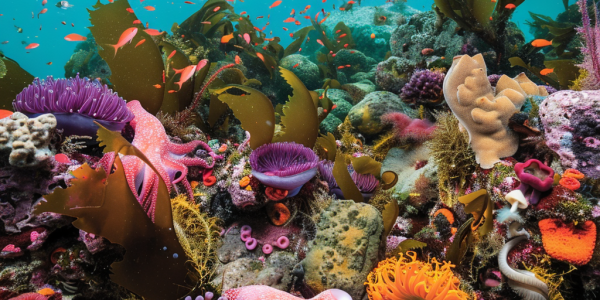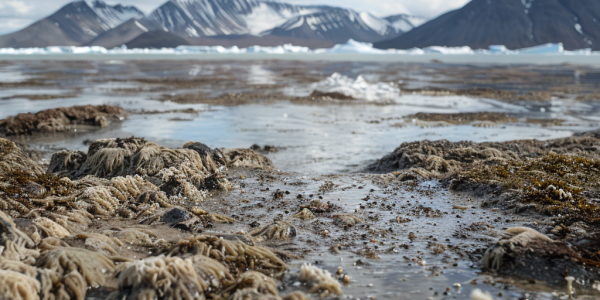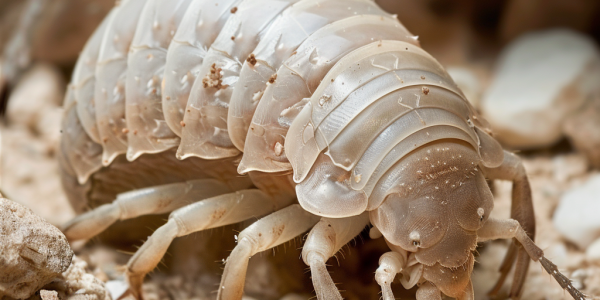Climate Change Threatens Polar Ecosystems: Alarming Decline in Sea Ice Impacts Marine Food Chain
Scientists are sounding the alarm over rapid changes in polar regions, particularly the alarming loss of sea ice, which threatens the marine food chain. With record low levels of Antarctic sea ice and predictions of an ice-free Arctic by 2050, the nutritional quality of crucial microalgae is at risk. Dr. Rebecca Duncan’s research highlights the importance of these ecosystems, emphasizing the need for urgent conservation efforts to address the impacts of climate change on polar marine life.
Study Reveals Aquatic Organisms as Key Indicators of Environmental Change
A groundbreaking study by the University of South Australia reveals that chemical fingerprints from lesser-known aquatic organisms can serve as vital indicators of historical environmental changes. Led by Dr. Zoe Doubleday, this research highlights the cost-effective potential of using unique chemical signatures from species like sponges and marine mammals to monitor ecosystem health and predict future trends, paving the way for improved conservation strategies amidst climate change.
New Insights into Moa Extinctions and the Importance of Habitat Preservation
Recent research published in Nature Ecology & Evolution reveals the ecological dynamics behind the extinction of moa, large flightless birds from New Zealand. The study explores the interactions between climate change and human activities, highlighting the importance of habitat preservation for current biodiversity. Understanding these extinction patterns is crucial for informing conservation strategies aimed at protecting New Zealand’s unique wildlife.
Study Reveals Impact of Ocean Noise Pollution on Oysters and Marine Ecosystems
Recent research from the University of Adelaide reveals that human-generated noise pollution is disrupting marine ecosystems, particularly affecting native oysters. The study emphasizes the critical role of natural sounds in the ocean for the settlement and survival of baby oysters, highlighting the detrimental impacts of anthropogenic noise from shipping and industrial activities. As conservationists call for action, understanding and mitigating noise pollution is vital for preserving marine biodiversity and ecosystem health.
Microscopic Fungi Enhance Soil Carbon Storage in Newly Formed Arctic Landscapes, Study Finds
Recent study by researchers at Queen Mary University of London reveals how microscopic fungi enhance soil carbon storage in newly formed landscapes resulting from the shrinking of Arctic glaciers. The colonization of microorganisms in exposed areas plays a crucial role in soil formation, offering significant carbon stores under specific conditions. Dr. James Bradley’s team’s findings, published in Proceedings of the National Academy of Sciences, shed light on the complex processes involved in post-glacial soil formation in Arctic regions.
AI Mapping Reveals Seafloor Invertebrate Activities Worldwide
Scientists from the U.S. and the U.K. have used AI to map seafloor invertebrate activities, shedding light on the importance of marine sediments in global ecosystems. The study, led by Texas A&M University, University of Southampton, and Yale University, provides valuable insights into ocean health and climate change responses.
Study Reveals Dietary Preferences of Desert Isopods
A recent study by researchers at the Hebrew University reveals the dietary habits of isopods, challenging assumptions and highlighting their impact on ecosystems. Isopods, often mistaken for bugs, play a significant role in desert environments, preferring macronutrient-poor soil crust over plant litter. This study sheds light on the complexity of isopods’ food selection and offers insights into broader ecological dynamics.
Volunteers Build Artificial Snowdrifts to Protect Endangered Seal Pups
Discover how volunteers in Finland are protecting endangered Saimaa ringed seals from the impacts of climate change by building artificial snowdrifts along Lake Saimaa. Led by hydrobiologist Jari Ilmonen, these dedicated individuals are creating essential shelters for seal pups in a changing environment. Learn how these innovative conservation efforts have helped the seal population rebound and provide hope for the future of this fragile ecosystem.
Study Shows Early Life Experiences Impact Lifespan of Red Squirrels in Yukon
A recent study reveals that red squirrels in Canada’s Yukon territory face challenges that can impact their lifespan. Factors like food scarcity and harsh winters can reduce life expectancy by 14 percent. The research, based on data from the Kluane Red Squirrel Project, highlights the importance of early life experiences in determining longevity. Lead researcher Lauren Petrullo emphasizes the unique ecosystem of the Yukon region and the impact of food availability on squirrel populations.
Hybrid Intelligence: A Promising Solution for Reconciling Biodiversity and Agricultural Productivity
Learn about the pioneering approach to reconciling conflicting goals of preserving biodiversity and maintaining agricultural productivity. A research team at the Technical University of Munich and the University of Hohenheim is proposing a solution using hybrid intelligence, combining artificial intelligence with collective human judgment to address the disconnect and fragmentation of available data. This interdisciplinary approach holds the potential to revolutionize the intersection of biodiversity and agriculture.










